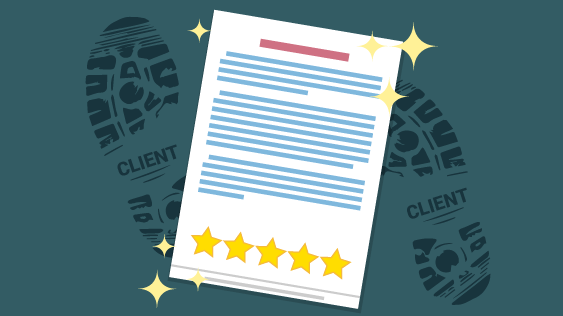How to determine your hiring needs
Are you unsure of your exact job requirements for your web developer and deciding whether to hire someone full-time or part-time? You aren’t alone!
Think through the project type
If you have a one-off request (like an API integration set-up, or trouble-shooting a specific bug), it may be best to start on a project basis when hiring a developer. If you find the issue or request comes up frequently, it may be a good sign to invest in a full-time position.
If you are looking for ongoing maintenance, such as website security (if your site is a WordPress site, security and concerns over outdated plugins, etc. should be a top priority for you!), a full-time role may be more appropriate. Ongoing SEO may also generate enough work for a full-time position.
If your website(s) have grown into a big enough portion of your business, it makes sense to invest in the right skills in-house to handle the development work you need.
Stick to one developer if possible
When you find yourself hiring multiple (3+) freelance developers to fix one-off issues that come up with your website, this can result in a bit of a rat’s nest of code. Let’s paint this picture. Say you hire a colleague’s cousin or nephew to make a change that messes up the site. The next dev who is called to fix something else or add something will see that something in the code doesn’t look good, or could be cleaned up, but will work around the sloppy code anyway. This issue starts compounding when multiple people touch the code of the site but don’t feel invested enough (or aren’t paid enough) to take the time to clean things up.
This is why working with the same dev is important for the long-term stability of your site. Codeable.io lets you set a preferred developer so once you find a talented developer who gets to know your site, you are able to request them when the next project comes up.
Determining Your Scope
Know Your End Goals
Determining the scope of work comes down to comprehensively defining the end goal(s) you are trying to achieve. If you can outline exactly what you are looking for as best as possible, then you are well on your way to determining your scope.
Don’t worry about how your developer is going to achieve something, but rather, what outcome you are trying to achieve.
The experts at Codeable are incredible at outlining the scope of work depending on the brief that you submit (the goals you are trying to achieve). If there is ANY gray area, a free consultation will help you articulate your project scope.
In other words: Identify the problem, not the solution
If you know what area needs to be worked on, then great! If you don’t know, it’s better to come with a PROBLEM in order to identify the solution. It’s better to come with a problem, and the developer will find the solution. If you can define what that problem is, they can figure it out.
Think through your site’s “user story” to help you define these end goals a bit more. For example, “as a user I want to be able to X, I need to be able to Y, so that Z can happen.”
Tips for understanding backgrounds and capabilities (Hiring a Dev, When You’re a Non-Dev)
Identify your project type
When it comes to capabilities required to complete your project, you don’t need to worry about which coding languages your project requires, but you should have a good idea of the project type/area you are in need of. Here are a some examples of general categories to consider:
- If you know your site uses a specific theme or plugin, you should identify if your developer has experience with that product. Check out this helpful article for more information on how to find a developer with experience with your plugin and/or theme.
- E-commerce – if you are looking to set up an online store, we recommend WooCommerce and Easy Digital Downloads for customizing your ecommerce setups.
- Site speed – WP Rocket is a great caching plugin to help with this that your dev may have experience with
- SEO – Yoast and The SEO Framework are two examples of high-quality SEO plugins to help with this
- Security – MalCare is a great security plugin
- Lead Generation – there are many form plugins to provide customizations to those of the WordPress sites in order to improve and grow your business. Our favorites include: Gravity Forms, Contact Form 7, Ninja Forms, Caldera Forms, Formidable Forms
Reviews Matter
Start by checking out your developer’s background/capabilities online. Look at their profile on their freelancer website, LinkedIn and/or their own personal website (if they have one).
While reading a developer’s background is important, knowing whether or not to trust their profile is even more important. REAL reviews tell it all! Be careful not to just take what they’re saying at face value. Real reviews from real people with real projects will help to ensure that they really are who they are saying they are.
Communication is Key
There is nothing wrong with a bit of back and forth communication to identify if your developer is the right fit for you – strong communication is key to a successful project, and you want to make sure that you jive well with the person you are working with.
Where to Find Developers
Quality Freelance Developers
If you are looking for a reliable place to turn to for high-quality development work, the experts over at Codeable.io have your back. Codeable has built a strong reputation for delivering premium development help for customers of the top WordPress companies enabling them to be more successful. Codeable and it’s thriving community of over 530+ vetted WordPress experts and 25 teams have always been a solid resource of quality-focused developers with the relevant skills and availability who can help. Their quality shines through with their review ratings – of the 2,000+ projects that are completed each month, 98% receive 4.8/5 star ratings.
Agencies
You may want to consider an agency over a freelance developer if you know your project will require brand development work or concepting ahead of the actual web development work. Agencies may be a better fit for larger engagements that require holistic brand strategy with larger budgets, and you know you will want to work closely with an Account Manager or other client-facing liaison. SAU/CAL agency specializes in e-commerce (WooCommerce) projects and will be sure to deliver.
Tips for Getting Your Developer Set Up for Success
Invest in a ramp-up period
Many will dedicate time identifying and communicating your problem/end goals to their developer, but it’s important to carve out time for your developer to familiarize themselves with the code of your site and identify all possible factors at play: this time is the ramp-up period. Your developer needs to make sure they have enough time to dig into the site to really understand what needs to happen and get ramped up on the code itself.
Get organized
A big part of having a successful project is establishing a relationship with your developer. Trust and communication are two key components to this relationship. For an efficient ramp-up period, make sure you organize all log-in credentials for your developer: FTP access, WordPress admin login, domain credentials (for migrations), etc. Make sure to have all those credentials ready to go to make the process easy on everyone.
Give all details up front. Always be sure to include the following when submitting your project to a developer, if applicable:
- Project brief -this is where you identify and define your problem/the end goals you are trying to achieve.
- PSD design files -if you have them.
- Brand guidelines -if you have them.
- Examples -any example sites accomplishing the functionality or look and feel you are going for?
- Login credentials (as stated above)
- Target deadline – your developer should make sure they have the capacity to be able to get the project done by your desired launch date. Pro tip: If your hard deadline is Friday, say it’s Wednesday. (Or if it’s a hard complex project like an API integration with a payment processor, make sure you build in an even bigger buffer, like an extra week or two).
In a nutshell, take the time to slow down and really define your project’s end goals to make for a smooth onboarding process. Don’t rush the hiring process, and know that you can never provide your developer with TOO much information. Happy hiring!


Smash this button if you’re ready to trade administration drudgery for more free-time.



